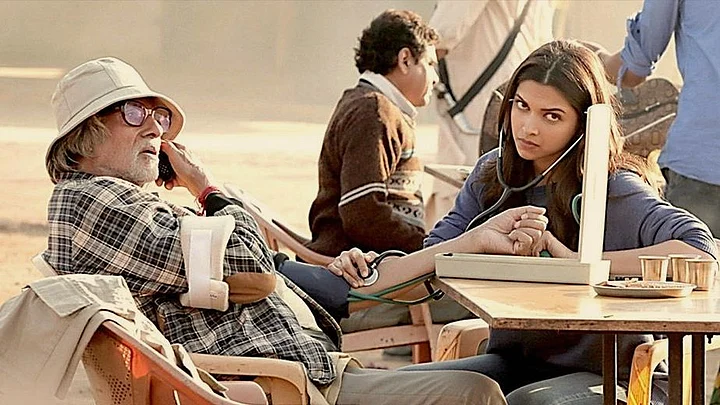"When I start working on a script, it may or may not entail actual writing. Even the two-three months I spend developing an idea are part of my writing process. I may not have written a single word, but I spend time ideating, because after that writing is not tedious. The toughest part is cracking the characters. I know what I am writing towards, but I leave it to my characters to figure out how they want to get there. I go along with them [on their journey].
Sometimes, you may not want a character to do certain things, but it is already so far long in that process that it will just go ahead do it. Like, if Bhashkor [Piku, 2015] had to die, he had to, because he had reached the point where even if I didn’t want him to go, the response from within was: what is he anyway going to do now? So, Bhashkor himself says: ‘I have done potty, I am in Kolkata, and Piku is with me; my family is also here; what more do I have to live for?’ Once he has done what he wanted to, he has his family with him, his life seems redundant to him. This [Bhashkor’s death] was also about giving Piku a chance and see what she does with the freedom she has after his passing; she continues to live like she did earlier.
In Vicky Donor, Biji was not there in the first three drafts; she came in during the fourth draft. I wrote a total of six drafts for the film. Biji came because there was something missing. In a Punjabi household, there is an organic chaos and clutter; that quality was lacking. With Biji, suddenly the household became richer.
Becoming the Character
I cannot write in the third person, like an outsider. I have to become the character to seamlessly drive the scene, the plot, the film. If I have to write about an extremely ghatiya insaan (lowly person), then I have to believe that I am that and see what all I can do. It is interesting to allow yourself to completely surrender to the character. Whatever it is saying or doing will come out naturally only if you keep your judgment aside.
For me, as Juhi, it might not be the right thing to do at that point of time, but the character has to do it. It can happen only when I set aside my logic and intellect.
You have to believe that there are all kinds of people in the world. Everybody will not please you, will not be your friend or have a clean soul.
In Piku, Rana Chaudhary’s (Irrfan Khan) sister is caught stealing her mother-in-law’s gold ring. If I see it from my own point of view, her actions are wrong, but aise bhi log exist karte hain (but such people also exist). As a woman, I try to understand her actions. Why did she steal her mother-in-law’s ring and give it to her mother? It could be [out of] love. She doesn’t earn, but she still wants to give her mother something. I just try to find the humanness. I don’t even know how that scene came to me; it just did, and I went along with it. ...
'Amitabh Bachchan Trusts the Writing'
I had written Piku for Mr Bachchan and later on, I felt Irrfan (Khan) should be Rana, but we didn’t know who would be Piku. Actors like Irrfan or Mr Bachchan like to discuss the character they play.
Mr Bachchan is clear: he trusts the writing and doesn’t change a word. On the other hand, Irrfan wants to know what was in your mind when you wrote the character; you need to be there for that discussion.
In Piku, there is a scene where Rana screams, ‘Agar itni hi jaldi thi jaane ki toh plane se karani thi na ticket’ and Piku goes silent. That happened because even Deepika [Padukone] did not know he was going to scream like that; he did that on his own. We had had so many discussions on it that he took Rana’s frustration beyond the written lines. I can sit alone in a room and write anything I want but unless the actor doesn’t become the person I’ve created, it is a waste."
The above excerpt is taken from a chapter featuring Juhi Chaturvedi, writer of Piku, in ‘Scripting Bollywood: Candid Conversations with Women Who Write Hindi Cinema’. The book is written by Anubha Yadav and is published by Women Unlimited.
(This is an exclusive excerpt from 'Scripting Bollywood: Candid Conversations with Women Who Write Hindi Cinema', by Anubha Yadav. The blurbs, paragraph breaks and subheadings have been introduced by The Quint for the ease of readers.)
(At The Quint, we question everything. Play an active role in shaping our journalism by becoming a member today.)
